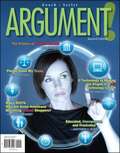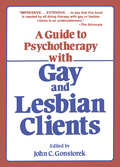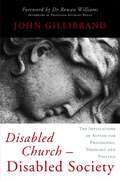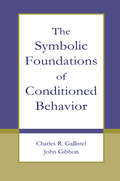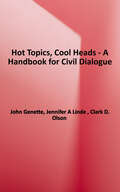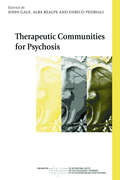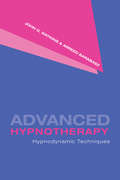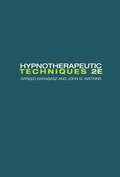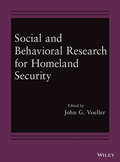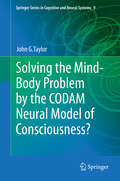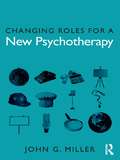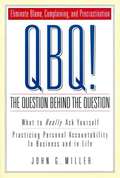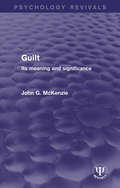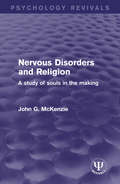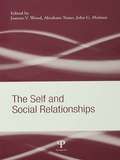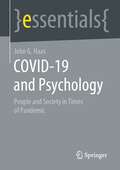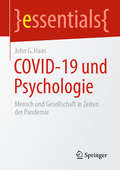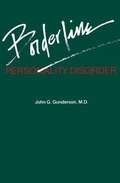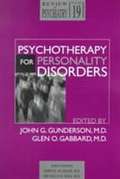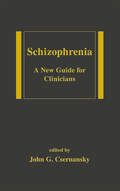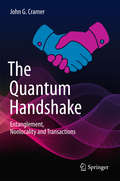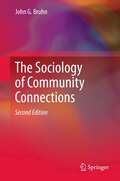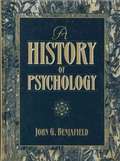- Table View
- List View
Argument!
by Erica Messenger John Gooch Dorothy U. SeylerARGUMENT! marries solid instruction in critical reading and analysis, argument, and research strategies with a visually engaging and dynamic design. ARGUMENT! teaches students how to read with a critical eye, how to think about and respond to the ideas of others, and ultimately how to craft their own effective, relevant, and engaging arguments. With ARGUMENT! students will learn how to acknowledge and respond to the complex arguments (both visual and textual) that exist all around them in addition to entering debates with their own strong and thoughtful voice.
Guide To Psychotherapy With Gay & Lesbian Clients,A
by John GonsiorekHere is the basic resource for therapists who work with homosexual clients. Written by professionals for professionals, A Guide to Psychotherapy With Gay and Lesbian Clients is an excellent compilation of data and sound suggestions for understanding the unique issues and concerns facing gay men and lesbians.
Disabled Church - Disabled Society
by John GillibrandIn this moving and intelligent book John Gillibrand, an Anglican priest, draws on his experience of caring for his non-verbal son, Adam, who has autism and is now a teenager. He reflects on how the experience has changed not just his life, but also his whole way of thinking about theology, politics and philosophy. Illuminated by an account of his day to day experiences with Adam, and deeper reflection upon the meaning of that experience, John Gillibrand considers the challenges that autism - and disability in general - present to the western tradition of thought in theology and philosophy. His experiences lead him to consider the place of people with autism in relation to religion and philosophy, and how the difficulties in providing adequate public services for those with autism and their carers point to a need for radical transformation of western political structures. This thoughtful and incisive book will be of interest to theologians, philosophers and sociologists, as well as to all those trying to integrate people with autism into society. Parents and carers will find much to reflect on. Shortlisted for the Michael Ramsey Prize for theological writing 2013.
The Symbolic Foundations of Conditioned Behavior (Distinguished Lecture Series #Vol. 1997)
by Charles R. Gallistel John GibbonThe goal of this book is to persuade students of animal learning that cognitive theorizing is essential for an understanding of the phenomena revealed by conditioning experiments. The authors also hope to persuade the cognitive psychology community that conditioning phenomena offer such a strong empirical foundation for a rigorous brand of cognitive psychology that the study of animal learning should reclaim a more central place in the field of psychology.
Hot Topics, Cool Heads: A Handbook for Civil Dialogue
by John Genette Jennifer A Linde Clark D. OlsonThere is a crying need for civility in our world. From families disagreeing at Thanksgiving tables to the halls of Congress, civility is in short supply. Most people can easily point to daily examples of incivility, but most people are unable to define “civility” or recognize what it looks like, much less practice it. Hot Topics, Cool Heads: A Handbook for Civil Dialogue, written by the founders of the Institute for Civil Dialogue, traces the lack of civility in our society, defines what it is from a communication perspective, then identifies the characteristics of a civil communicator and outlines the importance of civil listening. It then introduces the format of Civil Dialogue®, a method for people to present many sides of hotly contested issues. Through spontaneously participating in an audienced dialogue, participants are led through a facilitated conversation by taking a position on a provocative statement. Civil Dialogue features a semi-circle, where people who strongly agree and strongly disagree must face one another, while those who somewhat agree and somewhat disagree sit next to them, with a neutral or undecided participant completing the semi-circle. A trained facilitator opens the dialogue by asking for brief opening statements, then allowing the participants to freely discuss their thoughts and feelings while following certain “rules of civility.” The audience is then asked for comments and questions before participants give closing statements, followed by a summary of the entire dialogue by the facilitator. By modeling civility, participants learn to understand different perspectives as they give voice to their positions. These skills of a civil communicator can be used in conversations where people vehemently disagree with one another, without the goal of advocacy, but to enhance understanding. Through this understanding comes a greater foundation for democracy. Civil Dialogue can be used in a variety of contexts, so people need not fear having conversations about politics, religion, or sex. The necessary fundamentals of Civil Dialogue are included in the appendices.
Therapeutic Communities for Psychosis: Philosophy, History and Clinical Practice (The International Society for Psychological and Social Approaches to Psychosis Book Series #7)
by John Gale Alba Realpe Enrico PedrialiTherapeutic Communities for Psychosis offers a uniquely global insight into the renewed interest in the use of therapeutic communities for the treatment of psychosis, as complementary to pharmacological treatment. Within this edited volume contributors from around the world look at the range of treatment programmes on offer in therapeutic communities for those suffering from psychosis. Divided into three parts, the book covers: the historical and philosophical background of therapeutic communities and the treatment of psychosis in this context treatment settings and clinical models alternative therapies and extended applications. This book will be essential reading for all mental health professionals, targeting readers from a number of disciplines including psychiatry, psychology, social work, psychotherapy and group analysis.
Advanced Hypnotherapy: Hypnodynamic Techniques
by John G. Watkins Arreed BarabaszThis book focuses on tested hypnoanalytic techniques, with step-by-step procedures for integrating hypnosis into psychoanalytic processes. In its examination of the latest thinking, research, and techniques, the book discusses historical origins of hypnosis as well as how to apply it to current events, such as using hypnosis in the treatment of trauma with soldiers coming out of the war in Iraq. The text shows how hypnosis can be combined with psychoanalysis to make it possible to understand the subjective world of clients. Its accessible nature, rich detail, and significant updates make the book an invaluable resource for the professional who wishes to incorporate hypnosis into his or her practice. With the authors’ extensive and impressive knowledge, careful updates, and comprehensive coverage of the proper and appropriate techniques to use, this volume is an indispensable addition to the field.
Ego States: Theory and Therapy
by John G. Watkins Helen H. WatkinsDescribes techniques of brief hypnoanalysis that the authors have developed based largely on the psychoanalytic ego psychology of Paul Federn.
Hypnotherapeutic Techniques: Second Edition
by John G. Watkins Arreed BarabaszTwo premier hypnotherapists collaborate on a new edition of this award-winning text, a collection of techniques and information about hypnosis that no serious student or practitioner should be without. A thorough and practical handbook of various hypnotherapeutic measures, it contains illustrative examples and logically argued selection methods to help practitioners choose the ideal method for a needed purpose. Section by section, it breaks out the various methods and phenomena of hypnosis into easily digested chunks, so the reader can pick and choose at leisure. An excellent practical guide and reference that is sure to be used regularly. The authors have a wide and longstanding experience on the subject and thus can stay on clinically approvable methods.
Social and Behavioral Research for Homeland Security
by John G. VoellerSocial and Behavioral Research for Homeland Security features articles from the Wiley Handbook of Science and Technology for Homeland Security covering social and psychological aspects of terrorism and counterterrorism efforts from different perspectives. First, it examines the roots of terrorism; second, it explores the consequences of terrorism; then communication, training, and learning development of responders and the public in situations of terror attacks, are discussed.
Solving the Mind-Body Problem by the CODAM Neural Model of Consciousness?
by John G. TaylorThis book details a model of consciousness supported by scientific experimental data from the human brain. It presents how the Corollary Discharge of Attention Movement (CODAM) neural network model allows for a scientific understanding of consciousness as well as provides a solution to the Mind-Body problem. The book provides readers with a general approach to consciousness that is powerful enough to lead to the inner self and its ramifications for the vast range of human experiences. It also offers an approach to the evolution of human consciousness and features chapters on mental disease (especially schizophrenia) and on meditative states (including drug-induced states of mind). Solving the Mind-Body Problem bridges the gap that exists between philosophers of mind and the neuroscience community, allowing the enormous weight of theorizing on the nature of mind to be brought to earth and put under the probing gaze of the scientific facts of life and mind.
Changing Roles for a New Psychotherapy
by John G. MillerPsychotherapy is not a “one size fits all approach.” As author John Miller describes in Changing Roles for a New Psychotherapy, all theoretical orientations have their uses and merits in different situations and with different clients. Through a varied personal life and professional career, in which he developed a creative psychotherapeutic approach that allows the adaptation of diverse roles with clients, Dr. Miller has gained insights through working in academia, the sciences, management consulting, and a state hospital. He applies these insights, along with those he gained working various summer jobs, to take readers beyond the standard medical model of diagnosis and treatment by drawing on the roles of other professionals. He examines 11 different occupations and explores how the insights gained in each field can enhance therapeutic possibilities. How does cooking relate to psychotherapy? Can accounting change the way psychotherapy is performed? Read on to find out!
OBQ! The Question Behind the Question: Practicing Personal Accountability in Business and in Life
by John G. MillerThe covers the subject of personal accountability, with a surprisingly questions that we ask ourselves. For example, "why is this happening again?" "Who is responsible," and "When will this improve?" which determines our emotional response to the difficult situations that life presents.
Guilt: Its Meaning and Significance (Psychology Revivals)
by John G. McKenzieIt is acknowledged by most students of human behaviour that the idea of guilt is closely connected with that of man’s freedom and responsibility. It is a theme of law-court and pulpit, a concern of psychoanalysis and probation officers, a growing pre-occupation of the novelist. Our era has even been described as a ‘guilt-consciousness age’. It comes as a surprise, therefore, to discover that there are so few modern books in which the meaning of guilt is thoroughly explored. In the present volume, originally published in 1962, Dr J.G. McKenzie makes an admirable attempt to fill the gap. He begins by describing and analysing the various senses in which the word ‘guilt’ is used and by making a number of important distinctions. There follows a close psychological study of the origin and development of guilty feelings which is illumined by Dr McKenzie’s interpretation of ‘negative’ and ‘positive’ conscience. The author then turns to the legal, ethical and religious concepts of guilt and examines each with care and insight, always raising and facing the deepest issues for both theory and practice. In the concluding section of the book he deals with the question ‘How can the sense of guilt be dissipated?’ Against the backdrop of depth-psychology and theology he offers a penetrating and provocative understanding of divine forgiveness which plumbs the deeps both of man’s sin and of God’s love. Dr McKenzie writes out of a long lifetime of teaching and of clinical work in psychotherapy. The range of his reading and interests is extraordinarily wide. Through all his writing there shines not only his profound concern for people but his lively and indeed infectious conviction that man is still in the making and that his one true Maker is God.
Nervous Disorders and Religion: A Study of Souls in the Making (Psychology Revivals)
by John G. McKenzieOriginally published in 1951, this title is a study in developmental psychology with special reference to the effect of various types of religion on mental health and religious experience. With instinct as a ‘disappearing category’ in the psychology of human nature, a new approach to the realization of a harmonious interior life has been made using a doctrine of biological and personality needs as a starting point. Human nature is acquired and is not a static datum. The interior conflicts, the development of conscience and the origin of guilt feeling, the morbid complexes and the character-trends resulting from these conflicts with their sense of guilt are all studied. A long chapter on the various methods of mental healing through the doctrines of psycho-somatic medicine, with a new approach to Spiritual Healing in particular, prepares the way for the final chapter on the types of religion which originate or accentuate psychological conflicts, and the kind of religion which leads to a basic sense of security and harmonious personality. The illustrations are nearly all taken from Dr McKenzie’s own thirty years’ experience of dealing with neurotic disorders. This volume contains the substance (greatly expanded) of the Tate lectures delivered in Manchester College, Oxford, in 1947, and repeated at the St Andrews Summer School of Theology in1948 and at Iona Community.
The Self and Social Relationships
by John G. Holmes Abraham Tesser Joanne V. WoodAlthough the two major research areas of the "Self" and "Social Relationships" have flourished, they have done so largely independently of each other. More and more research, however, has indicated that relationships shape the nature of the self and identity, and that self-views influence interpersonal processes and the manner in which people navigate their close relationships. The integration of research on self and social relationships has proved a particularly rich one, generating some of the most creative and insightful theories in psychology. The Self and Social Relationships is the first volume that marks, expedites, and defines this exciting new research synthesis. It serves both as a platform for authors to present their latest ideas on the topic and to encourage continued integration in this emerging field. The contributions represent a diverse set of perspectives from social/personality and clinical psychology. Each chapter covers a topic that is central to the study of self and relationships, and presents some of the most exciting research programs in the field. This volume is essential reading for researchers and students in the areas of both self and relationships.
COVID-19 and Psychology: People and Society in Times of Pandemic (essentials)
by John G. HaasAlready, the COVID-19 pandemic has left a deep mark on all levels of human activity and sentiment. As far as the best possible management of the situation is concerned, it is not only up to governments and experts in health systems, but ultimately up to each individual to act appropriately. Understanding the psychological background and the societal context is essential. This essential is also intended to make a contribution in the sense of joint and successful coping. This Springer essential is a translation of the original German 1st edition COVID-19 und Psychologie by John G. Haas, published by Springer Fachmedien Wiesbaden GmbH, part of Springer Nature in 2020. The translation was done with the help of artificial intelligence (machine translation by the service DeepL.com). A subsequent human revision was done primarily in terms of content, so that the book will read stylistically different from a conventional translation. Springer Nature works continuously to further the development of tools for the production of books and on the related technologies to support the authors.
COVID-19 und Psychologie: Mensch und Gesellschaft in Zeiten der Pandemie (essentials)
by John G. HaasBereits jetzt hat die COVID-19 Pandemie tiefe Spuren auf allen Ebenen menschlichen Handelns und Empfindens hinterlassen. Was die bestmögliche Bewältigung der Situation betrifft, liegt es nicht nur an den Regierungen, Expert*innen und Mitarbeiter*innen in Gesundheitssystemen, sondern letztlich an jedem einzelnen, richtig zu handeln. Das Verständnis für die psychologischen Hintergründe und die gesellschaftlichen Zusammenhänge ist dabei von wesentlichem Nutzen. Dieses essential soll im Sinne einer gemeinsamen und gelingenden Bewältigung ebenfalls einen Beitrag dazu leisten.
Borderline Personality Disorder
by John G. GundersonA guide to the diagnosis and treatment of borderline personality disorder. Presents a broad and balanced approach to clinical problems that are central to the practices of all mental health professionals.
Borderline Personality Disorder: A Clinical Guide
by John G. GundersonThis text on borderline personality disorder covers topics such as: the borderline diagnosis; differential diagnosis case management; levels of care; pharmacotherapy; cognitive/behavioural therapies; and individual psychotherapies.
Psychotherapy For Personality Disorders
by Glen O. Gabbard John G. GundersonDefined by stable, long-term, subjective distress and/or social impairment, personality disorders affect up to 18% of the population. Social impairment and health care usage are far more prevalent among people with personality disorders than among people with major depressive disorders. Personality disorders are highly prevalent, variable, and notoriously difficult to treat, and they continue to challenge the therapeutic community and represent a formidable public health concern. This volume ably addresses personality disorders as one of the top priorities of psychiatry for the new millennium, offering a thorough and updated review and analysis of empirical work to point up the issues central to developing a therapeutic model for treatment as well as current research challenges. A review of extant research yields the heartening conclusion that psychotherapy remains an effective treatment for people with personality disorders. An examination of psychodynamic treatment for borderline personality disorder speaks to its efficacy. An analysis of the rationale for combining psychotherapy and psychopharmacology emphasizes the importance of identifying temperament and target conditions. A well-documented and reasoned treatise on antisocial personality disorder makes the crucial point that clinicians must acquire a depth of understanding and skill sufficient to determine what the cut-off point is for treatable versus nontreatable gradations. With the caveat that evidence supporting the efficacy of cognitive treatments for personality disorders is slight and that such approaches require tailoring, a strong case is made for their validity. This timely volume both answers and reframes many stubborn questions about the efficacy of psychotherapy for treating personality disorders.
Schizophrenia: A New Guide for Clinicians (Medical Psychiatry Series)
by John G. CsernanskyContains guidelines and recommendations-in tabular form for quick reference-on patient evaluation and optimal treatment for long-term care!Based on evidence from recent systematic clinical research studies, this comprehensive reference provides the latest information on the assessment, diagnosis, and treatment of schizophrenia-highlighting
The Quantum Handshake
by John G. CramerThis book shines bright light into the dim recesses of quantum theory, where the mysteries of entanglement, nonlocality, and wave collapse have motivated some to conjure up multiple universes, and others to adopt a "shut up and calculate" mentality. After an extensive and accessible introduction to quantum mechanics and its history, the author turns attention to his transactional model. Using a quantum handshake between normal and time-reversed waves, this model provides a clear visual picture explaining the baffling experimental results that flow daily from the quantum physics laboratories of the world. To demonstrate its powerful simplicity, the transactional model is applied to a collection of counter-intuitive experiments and conceptual problems.
The Sociology of Community Connections
by John G. BruhnMany of our current social problems have been attributed to the breakdown or loss of community as a place and to the fragmentation of connections due to an extreme value of individualism in the Western world, particularly in the United States. Not all scholars and researchers agree that individualism and technology are the primary culprits in the loss of community as it existed in the middle decade of the 20th century. Nonetheless, people exist in groups, and connections are vital to their existence and in the daily performance of activities. The second edition of the Sociology of Community Connections will identify and help students understand community connectedness in the present and future.
A History of Psychology
by John G. BenjafieldCombining an historical overview of psychology with a focus on advances in the 20th century, this text contains chapters on the history of developmental psychology, the history of methodology, humanistic psychology and cognitive psychology. It also considers the work of William James, Freud and Jung.
